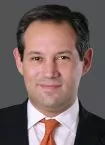Offshore insurance companies can provide substantial tax benefits to their owner-insureds through current deductions for the insurance premium and, if properly structured, deferral on reserve investments. In 2003, the Internal Revenue Service (the IRS) warned that it would scrutinize "purported" insurance companies organized offshore that invest in hedge funds or hedge fund-style assets.1 Specifically, the IRS stated that it would apply the passive foreign investment company (PFIC) rules to deny tax benefits attributable to arrangements that masked off-shore investment companies as insurance arrangements. On April 23, 2015, the US Treasury Department proposed regulations ( REG-108214-15) that, when finalized, provide rules on when a foreign insurance company is engaged in the "active conduct of an insurance business" and thereby exempt from the PFIC rules.
US owners of a PFIC are subject to US tax on passive income earned by the PFIC. The PFIC rules do not treat investment income earned by a company actively engaged in the insurance business as passive income. The Treasury's proposed regulations attempt to distinguish foreign reinsurance companies not treated as PFICs from a "purported reinsurance company" established by a hedge fund or hedge fund manager.
The PFIC rules were added to the Code in 1986 as an additional "anti-deferral" rule to take away the tax advantages of investing in foreign investment entities. A foreign corporation is a PFIC if either 75 percent or more of its gross income for the taxable year is passive or more than 50 percent of its assets produce passive income. A typical insurance company, with a large investment portfolio, could easily have more than 50 percent of its assets producing passive income.
To prevent the PFIC rules from treating many insurance companies as failing the 50 percent passive asset test, Congress added an exception to the definition of passive income. The PFIC rules provide that, "except as provided in regulations," the term "passive income" does not include any income that is derived in the active conduct of an insurance business by a corporation which is predominantly engaged in an insurance business and which would be subject to tax as an insurance company if the corporation were a domestic corporation.
For the first time, the proposed regulations define "active conduct" and "insurance business" for this purpose. Several points about these regulations will be of interest to market participants at the intersection of reinsurance and hedge funds. First, the proposed regulation incorporates by reference the definition of "active conduct" of a business used in existing Treasury Regulations regarding reorganizations involving non-US companies. The key part of that regulation states, "In general, a corporation actively conducts a trade or business only if the officers and employees of the corporation carry out substantial managerial and operational activities."
Existing regulations under that Code section also provide, "In determining whether the officers and employees carry out substantial managerial and operational activities, however, the activities of independent contractors shall be disregarded."
It seems clear that the proposed regulations, when effective, will not count the activities of insurance managers and other independent service providers toward satisfying the active conduct test. Furthermore, the proposed regulation is even narrower than the requirements of the existing regulation, which counts officers and employees of related entities who perform services for the foreign corporation. The proposed PFIC regulation excludes consideration of the officers and employees of related entities in applying the active conduct test.
The exclusion of activities of employees of related companies seems particularly onerous for offshore insurance companies. The PFIC provisions contain a look-through rule that disregards the corporate separateness of a parent corporation and its 25 percent or more owned subsidiary in determining whether the parent company is a PFIC. That is, the parent has to include its proportionate share of the subsidiary's income and assets in determining whether the parent company is a PFIC. Excluding the subsidiary's employees from the consideration of whether the parent company satisfies the "active conduct" requirement may strike some as unduly harsh.
Second, the proposed regulation does not treat all investment activity of an insurance company as producing passive income. The proposed regulations suggest that income earned "from assets held by the foreign corporation to meet obligations under the [insurance] contracts" is not passive income for PFIC purposes.
Nothing in the proposed regulations or the preamble suggests that any part of an insurance company's income from investment of its capital would be treated as other than passive income. One of the few points of relative clarity in the legislative history of the PFIC provisions is that foreign insurance companies "may derive passive income and, thus, qualify as PFICs in the event the entities maintain financial reserves in excess of the reasonable needs of their insurance business."2 Most market participants inferred from this language that an insurance company could treat a reasonable amount of capital as generating "active," rather than "passive" income for PFIC purposes. It will be interesting to see whether Treasury will be pressed to clarify its position on investment income derived from investments of amounts in excess of insurance reserves.
The preamble to the proposed regulations asks for comments on how to determine what "portion of a foreign insurance company's assets are held to meet obligations under insurance contracts." The preamble suggests "a specified percentage of the corporation's total insurance liabilities for the year" may be appropriate. Perhaps a percentage in excess of 100 percent would be appropriate to take into account the insurance company's need for capital. Hopefully, these and other points will be clarified before the regulations are made final.
1 Notice 2003-34, 2003-1 C.B. 990.
2 "General Explanation of the Tax Reform Act of 1986
Prepared by the Staff of the Joint Committee on Taxation,"
1025.
Learn more about our Tax Transactions & Consulting and Tax Controversy practices.
Visit us at mayerbrown.com
Mayer Brown is a global legal services provider comprising legal practices that are separate entities (the "Mayer Brown Practices"). The Mayer Brown Practices are: Mayer Brown LLP and Mayer Brown Europe – Brussels LLP, both limited liability partnerships established in Illinois USA; Mayer Brown International LLP, a limited liability partnership incorporated in England and Wales (authorized and regulated by the Solicitors Regulation Authority and registered in England and Wales number OC 303359); Mayer Brown, a SELAS established in France; Mayer Brown JSM, a Hong Kong partnership and its associated entities in Asia; and Tauil & Chequer Advogados, a Brazilian law partnership with which Mayer Brown is associated. "Mayer Brown" and the Mayer Brown logo are the trademarks of the Mayer Brown Practices in their respective jurisdictions.
© Copyright 2015. The Mayer Brown Practices. All rights reserved.
This Mayer Brown article provides information and comments on legal issues and developments of interest. The foregoing is not a comprehensive treatment of the subject matter covered and is not intended to provide legal advice. Readers should seek specific legal advice before taking any action with respect to the matters discussed herein.



